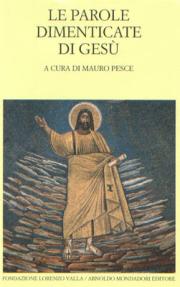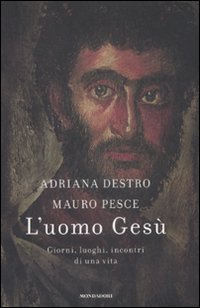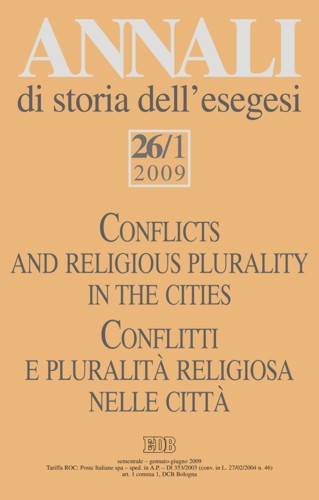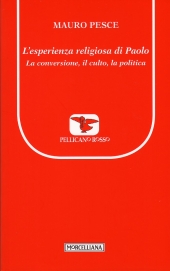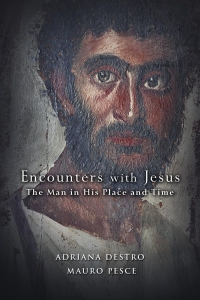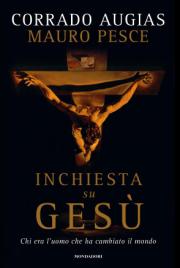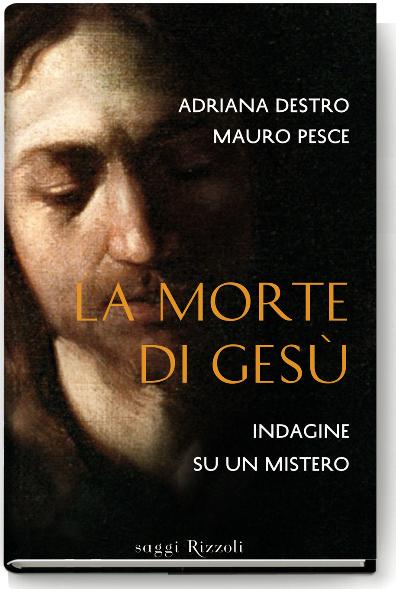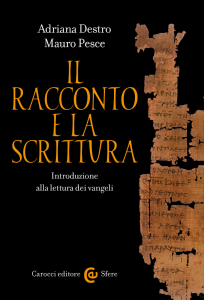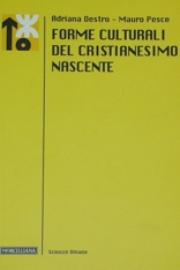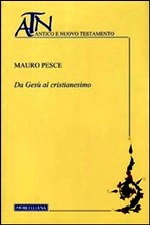Czachesz-Uro, Mind, Morality and Magic. Cognitive Science Approaches in Biblical Studies
- Dettagli
- Categoria: Documenti
- Pubblicato Giovedì, 12 Dicembre 2013 20:05
- Visite: 7826
Mind, Morality and Magic. Cognitive Science Approaches in Biblical Studies
Edited by István Czachesz and Risto Uro (Durham, Acumen 2013)
A brief comment by MauroPesce
1. I would like to thank István Czachesz and Risto Uro, editors of Mind, Morality and Magic Cognitive Science Approaches in Biblical Studies, for inviting me to discuss their book. Since I don’t have any competence in their field I suppose that the reason for this invitation was the missionary intention of István and Risto to convert me from philology and history to their explanatory pluralism. Reading this book was for me a very difficult trip in an unknown world. For this reason I want to express my gratitude, because, in order to understand every line I was obliged to read a certain amount of books and articles in the field of cognitive studies, beginning from Vilayanur Ramachandran The Emerging Mind, and his Encyclopedia of Human Brain; to Pascal Boyer, Religion Explained; Boyer, Pascal, (2000), “Functional Origins of Religious Concepts:
Conceptual and Strategic Selection in Evolved Minds”, Journal of the Royal Anthropological Institute, 6 :195 -214; Boyer, P. (2000), “Evolution of the modern mind and the origins of culture: religious concepts as a limiting case”, in Carruthers, P. & Chamberlain, A. (Eds.), Evolution and the Human Mind: Modularity, Language and Meta-Cognition, Cambridge: Cambridge University Press, pp 93 -112. McCauley-Lawson, Bringing Ritual to Mind. Psychological Foundations of Cultural Forms (2002); Iid., Rethinking Religion. Connecting Religion and Culture, 1993, and many articles of H. Whitehouse and L.H. Martin and to have a look on many articles in cognitive studies on so different topics. This book represents an important achievement and enlargement in the field of so-called “biblical studies” (I use the expression “biblical studies” and “biblical scholars” in very large and inclusive way: these terms include all the ancient texts in the Jewish History and Christian origins, without any distinction between canonical and non-canonical, and also belonging to other contemporary groups and religions. Archeology is not excludes, as not excluded are the different approaches from philology to human and social sciences).
It is probably true that what I have to say on this book is largely external to the cognitive studies, but it also true that the great majority of so-called “biblical scholars” do not have a clear idea of what cognitive studies on religions are. My reaction to this book can be seen as an expression of what “biblical scholars” based on philology, history and cultural anthropology could probably think.
2. Luther H. Martin, a scholar hat has dedicated more than twenty years to the evolutionary and cognitive studies of religions,[i] writes in the first chapter of the book: “ The social anthropologist Jerome Barkow has recently edited a volume entitled Missing the Revolution (Barkow 2006). In it, he and his contributors argue that many social scientists have, for various historical, disciplinary, and political reasons, missed the evolutionary and cognitive revolution that has so impacted the natural sciences […] I would add to Barkow’s list of those who have missed the revolution historians of religions, including biblical scholars, although [….] the cognitive revolution finally reached these fields in the past few years. (Luther H. Martin 22-23).[ii]
Also Vilayanur S. Ramachandran, The Emerging Mind, 2003 affirms that after the Copernican, Darwinian, and Freudian revolutions, “now we are posed for the greatest revolution of all - understanding the human brain. This will surely be a turning point in the history of the human species for, unlike those earlier revolutions in science, this one is not about the outside world, not about cosmology or biology or physics, but about ourselves, about the very organ that made those earlier revolutions possible.[iii]
I think that Martin expresses the common assumption of the two editors of the book when he writes that “human brains and their fundamental mental functions have changed little, if at all, over the last 3000–4000 years with which most historians are concerned even though these mental capacities and functions will be expressed differently in different environments. [17] and when he writes that “Historians have always been concerned with the minds of their subjects. […] Their psychological assumptions, however, have generally been implicit and, for the most part, decades out of date. Attention to recent advances in evolutionary psychology and the cognitive sciences can help correct this deficiency” (Luther H. Martin 15-16). And that “we have to “relinquish the outmoded notion of minds as blank slates upon which are inscribed the common patterns and processes of a dominant cultural context” (p.18). “Mental output is [ …] structured, constrained, transformed and contributed to by innate and developmentally precocious cognitive capacities that have been established as shared products of our evolutionary history, as have all other biological functions of our somatic system (p. 16).
This, however, does not mean – as Czachesz and Uro affirm in their introduction “that social and cultural institutions have in no way influenced human evolution (Richerson & Boyd 2005) or that social and cognitive theorizing cannot or should not be combined (see especially Chapters 14–15 in this volume). Some cognitive scholars have envisioned an approach based on “explanatory pluralism,” which would “enable scientists working at one analytical level to exploit the conceptual, theoretical, methodological and evidential resources available at another” (McCauley & Bechtel 2001).”[iv]
The project of Czachesz and Uro is therefore inclusive: they propose to accept a multiplicity of methodological perspectives: “The volume relies on a broader understanding of CSR [“Cognitive science of religion”] including evolutionary considerations, and discusses the relevance of CSR research for biblical studies in a number of areas” (p. 5).
Robert McCauley, writes - this year 2013 - an articles about “Explanatory pluralism and the cognitive science of religion. Why scholars in religious studies should stop worrying about reductionism”. McCauley insists on two points that seem important also for Czachesz and Uro. First, he insists on “explanatory pluralism” that is on “cross-scientific relations between Socio-cultural sciences, Psychological sciences, Biological sciences, Physical sciences”.[v] Second, “the cognitive science of religion do not poses any threat to [the] concerns or […] objects of study of history and sociocultural sciences (p. 11).
These affirmations of McCauley express certainly, I believe, also the point of view of the contributors of Mind, Morality and Magic. I have however not to hide the radical shift that is not only implicit but also wanted in the passage to the cognitive study of religion: the shift from description or interpretation of religious phenomena to their explanation. The cognitive study of religion does not simply describe religious phenomena because it wants to explains why they happen.
3. This cross-scientific relations between different sciences are already practiced by many scholars that are well known by editors and contributors to this book. One of them, Pascal Boyer, in his […] this book [Religion explained. The evolutionary Origins of Religious Thought] wrote more that ten years ago: “I mention a number of findings and models in cognitive psychology,
anthropology, linguistics and evolutionary biology. All of these were discovered by other people, most of whom did not work on religion and had no idea that their findings could help explain religion” (page 2). I want to stress this point. Boyer’s book is not a work of a specialist in neurosciences, but a work of a scholar that tries to apply the results of some sciences to the traditional object of cultural anthropology. The topics itself of two articles of Pascal clearly shows what is the primary object of his research: the consequence that the scientific study of the human brain can have in the explanation of cultural phenomena. See for example: P. Boyer’s article of 1994 on “Cognitive constraints on cultural representations: Natural ontologies and religious ideas”,[vi]
and his article of 1998: “Cognitive tracks of cultural inheritance: How evolved intuitive
ontology governs cultural transmission”.[vii] It is therefore possible to distinguish the neurosciences of the human brain from the studies that try to apply the results of neurosciences in order to explain cultural phenomena.
From the point of view of this distinction a big question arises, because the application to biblical studies of neurosciences need a direct knowledge of neurosciences by biblical scholars They cannot base themselves on the results of other scholars that have applied neurosciences to religions. Biblical scholars must be specialists of neurosciences, must have a direct practice of these sciences and not limit themselves to read books and articles of anthropologists or psychologists that have applied neurosciences to religions.
The danger to have only an indirect knowledge of some fields of contemporary scientific research has not been always avoided by Biblical scholars. In the field of the so-called “social scientific criticism” of the Bible, many scholars have limited themselves to “apply” to the biblical texts anthropological or sociological models, that they could find in books or articles of sociologists or anthropologists. But they did not practice directly social anthropology on the field.
Most of the affirmations, e.g., of Pascal Boyer on the birth of religious concepts are particular interesting, but I do not find a cogent reason that demonstrate their foundation in cognitive or evolutionary studies. More than a demonstration I find in them the presentation of an intuition or a possibility.
In other words original and scientific results in the field of cognitive studies of religion can be obtained only with a direct practice of neurosciences and this is what István Czachesz and Risto Uro propose.
4. Most of the contributors to this volume have followed the most serious way: the direct knowledge of cognitive studies, but they want also to show the impact of a knowledge of cognitive studies on the traditional historical or socio-anthropological ways to face the questions. A good example of both attitudes is Luomanen article on memory.
He begins with the evaluation of studies that have already applied cognitive research to the study of memory. In particular he begins from Harvey Whitehouse’s model of memory in which he argues that the two modes of religiosity are based on the encoding of religious traditions into
two distinct memory-systems: episodic memory in the imagistic mode and semantic memory in the doctrinal. After examining other proposals of application of cognitive research to the study of memory (for example Dan Sperber) he decides to refer directly to cognitive studies and in particular to the work of A. Baddeley on “The Episodic Buffer” (2000) and on “Working memory” (2010). Luomanen conclusion is: “Baddeley’s working memory model and especially its episodic buffer provides a more appropriate framework for future memory research in early Christian studies. The strength of Baddeley’s theory lies in the fact that it allows us to integrate—on the level of cognitive memory processes—several methodological approaches that have already proven their applicability. On the basis of the simple Tulvingian distinction between the semantic and the episodic memory, this is not possible “ (p. 42). In Luomanen article is however also present a second aspect that has an important critical impact on contemporary theories on memory in the gospel tradition. However, the critics of Luomanen is not done on the basis of neurosciences but mostly from the point of view of cultural anthropology.
5. The choice of the editors to dedicate the book to different topics (a) Memory and the transmission of biblical traditions; b) Ritual; c) Magic; d) Emotions) has an important effect. The book shows how cognitive studies can provoke a profound change in different fields of biblical studies. This book, in my opinion, is able to show - to contemporary biblical scholars -the possible shift to a new scientific pattern: that of the explanation of religious phenomena and not simply of their description and interpretation, if they don’t want to “miss” the greatest revolution of all - understanding the human brain.
At the conclusion of my short observations, I want to add a question: how a neuroscientific theory can explain why and how texts are written? Cognitive studies can reach conclusions about the operations of human brain because they have at disposal living human brains today. Scholars of Jesus and early Christianity, however, do not have at disposal the human brains of first centuries. It is true that human brain remains the same in the last 4000 years, but the great difference is that the direct object of cognitive studies is the brain, and the object of biblical studies are only texts. What we need is a theory that can explain how a text can be substitutive of a brain. Otherwise it will be not clear in what measure the affirmations of a biblical scholar who applies cognitive studies are cogent. We need a theory that can explain in what measure a text can be basis for the reconstruction of an operation of the human brain. Otherwise it is difficult to avoid the impression to be in presence of intuitions, hypotheses, more than of results based on scientific cognitive studies.
[i] Martin, L. H. 1993. “Introduction.” In Religious Transformations and Socio-Political Change:Eastern Europe and Latin America, L. H. Martin (ed.), 1–5. Berlin: Mouton de Gruyter. Martin, L. H. 2003. “Cognition, Society and Religion: A New Approach to the Study of Culture.” Culture and Religion 4(2): 207–31. Martin, L. H. 2004. “The Very Idea of Globalization: The Case of Hellenistic Empire.” In Hellinisation, Empire and Globalisation: Lessons from Antiquity, L. Martin & P. Pachis (eds), 123–139.Thessaloniki: Vanias Publications. Martin, L. H. 2005. “Performativity, Narrativity, and Cognition: ‘Demythologizing’ the Roman Cult of Mithras.” In Persuasion and Performance, Rhetoric and Reality in Early Christian Discourses, W. Braun (ed.), 187–218. Waterloo: Wilfrid Laurier University Press. Martin, L. H. 2009a. “Conclusion: Imagistic Traditions in the Graeco-Roman World.” In
Imagistic Modes of Religiosity in the Graeco-Roman World, L. Martin & P. Pachis (eds), 237–47. Thessaloniki: Vanias Publications. Martin, L. H. 2009b. “Why Christianity was Accepted by Romans But Not by Rome.” In Religionskritik in Der Antike, U. Berner & I. Tanaseanu (eds), 93–107. Munster: LIT-Verlag. Martin, L. H. & J. S.rensen. 2011. Past Minds: Studies in Cognitive Historiography. Sheffield: Equinox.
[ii] Barkow: “There is no single term for those applying Darwinian theories of evolution to human behavior, and no clear consensus about how precisely, this perspective is to be applied. The terms “human behavioral ecology”, “sociobiology”, “evolutionary Psychology”, “Darwinian Psychology”, and even “Selfish gene theory” are in current use, though many evolutionists (particularly evolutionary biologists and some psychologists) find no need to apply a distinctive term to themselves or to their work, because, for them, evolution is mainstream”.
[iv] McCauley, R. N. and Bechtel, W., ‘Explanatory Pluralism and Heuristic Identity Theory’, Theory & Psychology 11 (2001), pp. 736-760.

